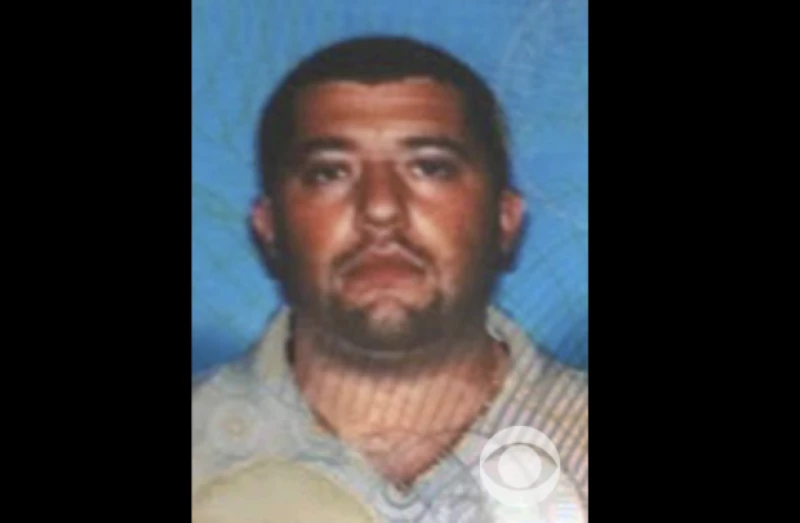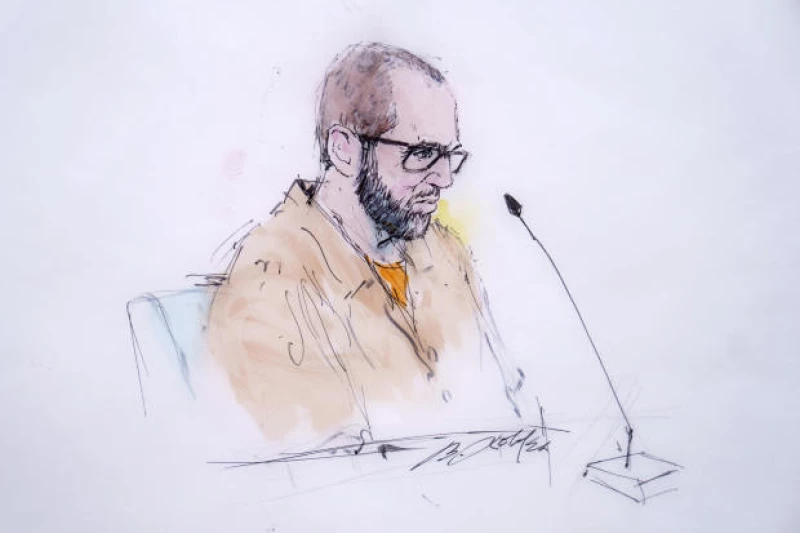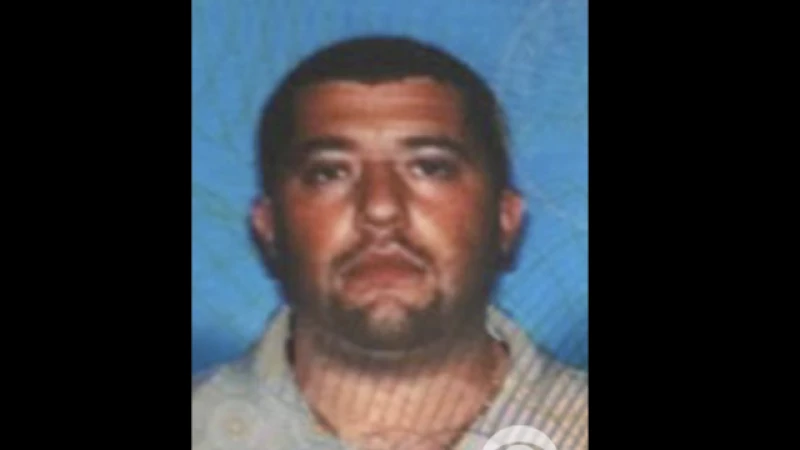Back in 2016, federal prosecutors were already aware that Alexander Smirnov, the confidential FBI informant at the center of a scandal involving alleged lies about President Biden's business dealings, was described as a known "liar and a fraudster."

Recently, Smirnov, aged 43, was charged last month for allegedly fabricating a story about President Biden and his son Hunter accepting $5 million bribes from a Ukrainian energy company. This revelation came as a shock, especially considering that Smirnov's claims had played a significant role in the Republican impeachment efforts against President Biden, with many GOP lawmakers hailing him as a highly credible source.
An investigation by CBS News has uncovered doubts about Smirnov's credibility dating back almost ten years, raising concerns about why he continued to be employed by the FBI for so long. CBS News has uncovered a previous criminal case in which Smirnov provided information to the FBI that led to a prosecution. In that earlier case, Smirnov was also accused of deception, mirroring the false allegations he made about the Bidens' involvement in corruption.
Expressing disbelief at the extent of his deception, Joseph Benincasa, a defense attorney in the case, remarked, "Having seen how much he lies, it's kind of surprising that he has been able to do it for as long as he has without anyone in the government stopping him. They never should have used him again … it's shocking."
According to law enforcement experts interviewed by CBS News, the growing concerns regarding Smirnov's credibility should prompt a thorough review of every case he was involved in.
"I think a review has to be done, either internally by the FBI or, more advisedly, by the Department [of Justice] to find out not only what happened here, but whether there is a systemic problem in the…supervision of informants," suggested Michael Bromwich, a former Justice Department inspector general.
Bromwich further added that this process might necessitate federal prosecutors to meticulously revisit each case Smirnov was a part of to ascertain if his dishonesty had compromised them. Such an undertaking would likely require agents to inform defense attorneys and judges involved in those cases.
Smirnov's work for the FBI was a closely held secret until February, when the FBI indicted him for allegedly lying to agents about the conduct of President Biden and his son, Hunter Biden. The indictment claims that in 2020 he falsely told the FBI that Hunter Biden demanded millions of dollars for himself and then-Vice President Biden to shield a Ukrainian energy company from an investigation by the country's top prosecutor. Hunter Biden served on the board of the energy firm, Burisma.

According to the indictment, Smirnov told his handlers that Hunter Biden had promised to protect the company "through his dad from all kinds of problems." But FBI officials became suspicious of Smirnov's bombshell allegations when they realized the timeline of events he gave his handlers didn't add up. The indictment also revealed that Smirnov had connections to Russian intelligence services, raising the specter of a disinformation campaign.
The February indictment was not the first instance in which Smirnov was accused of lying in his representations to the FBI, CBS News has learned. Smirnov surfaced as a key secret witness in a sweeping racketeering case in California in 2015. In that case, the Justice Department brought charges against 33 defendants with ties to Armenian organized crime groups. Among the charges were money laundering, health care fraud and even a murder-for-hire.
Smirnov's information contributed to the case against a married couple, Tigran Sarkisyan and his wife Hripsime Khachatryan, charged with conspiring with others to use fake identities to collect tax reimbursements from the federal government. The couple eventually pleaded guilty to a single count of racketeering in May 2017. In a 2018 sentencing memorandum, the couple's lawyers flatly accused Smirnov of deceit.
"The [Confidential Human Source] was known to the United States as a liar and fraudster," the sentencing brief states.
A footnote in the document states that the government was provided with the notes of their private investigator's interview with a close associate of Smirnov who repeatedly called him a "liar."
Benincasa, a lawyer for Sarkisyan and Khachatryan, said his clients' case raises serious concerns about the FBI's handling of its confidential informant.
"Confidential informants will say things to their handlers to, you know, they're trying to get a benefit. Some of them are even being paid. They want to be useful," Benincasa said. "But this one was somebody who was really blatant in his lies."
"In this case," he said, "the FBI did not seem to be interested in reining him [in]."
A lawyer for Smirnov, David Chesnoff, said in a statement, "Our client stands behind his years of service to the Department of Justice and the United States." Smirnov has pleaded not guilty.
Criminal informants are rarely "pillars of society," Steve Laycock, a former FBI assistant director of the bureau's intelligence division who was in charge of its confidential human sources program, told CBS News. They have access to information that is valuable to law enforcement precisely because they inhabit a world of criminals and illicit characters.
Discussing the challenges of dealing with informants with questionable backgrounds, Bromwich acknowledged the complexities involved in navigating their tips.
"It's a very tricky and difficult business," he said. "But it's really important for the FBI or any other law enforcement agency to do whatever they can to verify the accuracy and truthfulness of the information they obtain."
Laycock emphasized that the FBI has a responsibility to carefully consider and potentially address any issues raised about its informants.
The allegations against Smirnov were part of a convoluted story that included accusations of fraud and deception among a group of dubious yet colorful characters.
Smirnov, a citizen of both Israel and the U.S. with roots in Soviet-era Ukraine, had integrated himself into the Armenian community and formed relationships with Sarkisyan and Khachatryan, according to Benincasa. However, when the couple faced charges, they suspected Smirnov of being a government informant. Sarkisyan and Khachatryan alleged that their interactions with Smirnov were unrelated to the criminal charges against them and claimed they had evidence to prove he was dishonest and a fraudster.
During 2018, in an attempt to strengthen their position in the sentencing of their clients, the defense attorneys initiated a civil lawsuit on behalf of Sarkisyan and Khachatryan against Smirnov. The lawsuit alleged breach of contract and fraud.
The lawsuit referred to Smirnov by his real name but did not disclose his identity as the confidential informant in the criminal case due to a protective order. However, it was known by the government that he was the same person.
Benincasa suggested that federal prosecutors recognized the challenge they faced. Initially, the prosecutors had hinted at pursuing a 10-year sentence in any plea agreement. However, after the lawsuit was filed, the government changed its stance. Benincasa speculated that prosecutors aimed to prevent Smirnov from being deposed in the civil case and potentially revealing his identity as an informant. As a result, prosecutors reduced their request to 21 months, a significant decrease from the initial 10 years they sought. Ultimately, the judge sentenced the couple to 15 months.
Presently, Sarkisyan and Khachatryan have been released from prison, residing and working in Los Angeles, striving to move on from the legal turmoil. Meanwhile, Smirnov is incarcerated in a federal correctional facility awaiting trial for allegedly lying to the FBI.
Criminal Indictment Reveals FBI Handler Admonished Informant
In a recent criminal indictment, it was revealed that Smirnov, a confidential informant for the FBI since 2010, was admonished by his FBI handler on more than 20 occasions to provide truthful information to the agency. This information has prompted Benincasa, representing clients in a related case, to consider filing for a review of their situation in light of these revelations.







